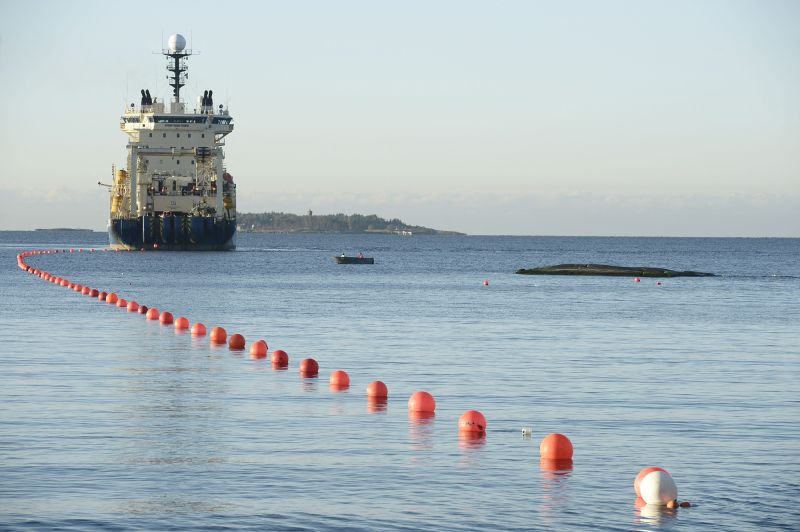Investigators are trying to crack the mystery of how two undersea internet cables in the Baltic Sea were cut within hours of each other, with European officials saying they believe the disruption was an act of sabotage and US officials suggesting it was likely an accident.
The two cables – the BCS East-West connecting Lithuanian and Sweden and the C-Lion1 linking Finland with Germany – were suddenly disrupted on Sunday and Monday.
European leaders were quick to voice their suspicions. Germany’s Defense Minister Boris Pistorius said that “nobody believes that these cables were accidentally severed.”
The foreign ministers of Finland and Germany said in a joint statement that they were “deeply concerned” about the incident and raised the possibility that it was part of a “hybrid warfare,” specifically mentioning Russia in their statement.
Their assessment was not plucked out of thin air. Russia has been accused of waging a hybrid war against Europe after a string of suspicious incidents, arson attacks, explosions and other acts of sabotage across multiple European countries were traced back to Moscow.
And the disruption to the cables came just weeks after the US warned that Moscow was likely to target critical undersea infrastructure. This followed months of suspicious movements of Russian vessels in European waters and the significant beefing up of a dedicated Russian secretive marine unit tasked with surveying the seabed.
The Kremlin on Wednesday rejected the “laughable” suggestions that it was involved, saying it was “absurd to keep blaming Russia for anything without any grounds.”
Still, law enforcement agencies in both Sweden and Finland indicated they believe the damage deliberate.
The Swedish Prosecuting Administration said Tuesday it launched a preliminary investigation into a suspected sabotage. Then on Wednesday, the Finnish National Bureau of Investigation announced it was opening a criminal investigation into the suspected crimes of aggravated criminal mischief and aggravated interference with communications.
One vessel in particuar has sparked the interest of authorities and online sleuths.
The Chinese-flagged ship Yi Peng 3 was spotted in the area around the times the two cables were cut. The bulk carrier was sailing from the Russian port of Ust-Luga, where it docked for several days.
On Wednesday, the Danish Armed Forces said they were present in the area near Yi Peng 3, but did not say whether they pursued the vessel.
Asked about the vessel during a press briefing on Wednesday, Chinese foreign ministry spokesperson Lin Jian said he was “not aware of the situation.”
He said China “has always fully fulfilled its flag state obligations and requires Chinese ships to strictly abide by relevant laws and regulations.”
“We also attach great importance to protecting the safety of undersea infrastructure and work with the international community to actively promote the construction and protection of submarine cables and other global information infrastructure,” he said.

